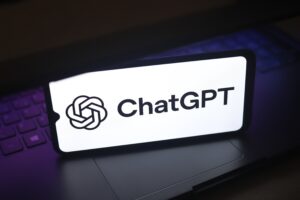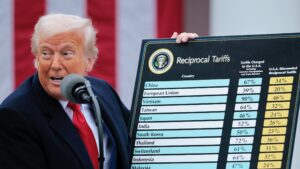
Last week, The Atlantic published a story with a very frank headline: “The Job Market Is Hell.” The piece describes a frustrating situation for job seekers and hiring managers alike: “Young people are using ChatGPT to write their applications; HR is using AI to read them; no one is getting hired.” Surveys also show growing anxiety about generative AI and its effect on jobs. A recent Reuters Ipsos poll found that 71 percent of respondents said “they were concerned that AI will be ‘putting too many people out of work permanently.'”
Perception doesn’t always match reality, but in this case, the job market really is facing headwinds. The Washington Post reported today that long-term unemployment is at a post-pandemic high; in a report on the weak labor market, NBC News cited Citi analysts who reported “near-zero job growth” in recent months; and a study by three Stanford economists recently found that AI is already decreasing job openings for software developers.
Reports like these paint a bleak picture for job applicants. But this month, OpenAI announced that it wants to help job seekers and employers by launching an AI-powered hiring platform. According to TechCrunch, the job platform would compete with LinkedIn and is set to launch in 2026.
The new product, which OpenAI outlines in a blog post, would work similarly to other AI-powered job platforms.
In short, the OpenAI Jobs Platform would help employers find AI-savvy employees to hire for whatever needs the company has. OpenAI says it’s been working with tons of businesses like Walmart, various consulting firms, and even state government agencies to find out what modern businesses are looking for in terms of AI.
On its face, the concept sounds like an AI-focused version of LinkedIn, where people would create resumes on the platform and be matched up with jobs that fit that description using, of course, AI. In addition to LinkedIn, hiring platforms like Hiring.cafe and Sonara are already trying to fill this niche in the job market
OpenAI also announced that it will start its own AI certification program. This actually started earlier this year with the launch of OpenAI Academy, an online class program to instruct people on how to use AI better at work. The OpenAI academy will start issuing certifications to people who complete the courses, and those certifications will be shown to potential employers. (LinkedIn has its own certificate program.)
As generative AI causes new challenges and anxieties for job seekers, OpenAI clearly believes it can also solve some of these problems. In a blog post about the OpenAI Jobs Platform, Fidji Simo, OpenAI’s new CEO of Applications, wrote that she believes “AI will unlock more opportunities for more people than any technology in history.”
For job seekers, it may be hard to square this utopian vision with recent comments from Anthropic CEO Dario Amodei, who famously predicted that AI could destroy half of all entry-level white-collar jobs by 2030. In addition, LinkedIn already offers many of the tools OpenAI hopes to deliver with its own job platform, and in a tough job market, LinkedIn has hardly been a silver bullet.
Disclosure: Ziff Davis, Mashable’s parent company, in April filed a lawsuit against OpenAI, alleging it infringed Ziff Davis copyrights in training and operating its AI systems.







